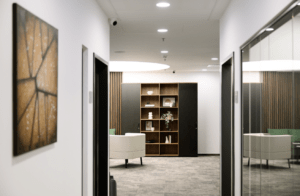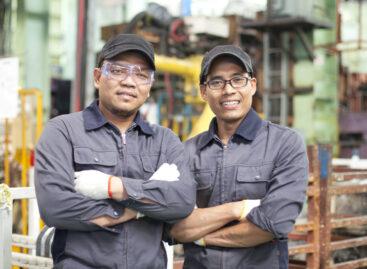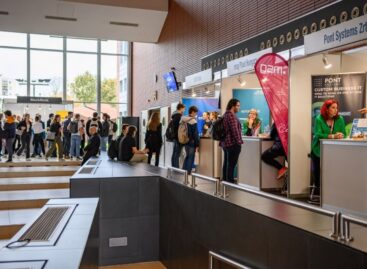Employees crave inspiring spaces and community instead of bean bags and foosball tables
According to a recent study, 85 percent of people would rather return to the office from home office – but it doesn’t matter what kind. The future belongs to hybrid work and office hotels.
 The classic office has been sacrificed: the future belongs to livable, flexible and collaborative spaces. Company leaders are looking for different things in an office today than they did five years ago, and employees don’t care where and in what environment they work – according to internal research by a Budapest office services provider. The office of the future does not compete with the living room, but replaces it. An organizational psychologist, real estate market expert and a domestic representative of an alternative office model talk about how the workplace is changing. Home in the office, or is the office home? During COVID, many people learned to work from home, but it turned out that loneliness, isolation and the lack of transparency of borders are not sustainable in the long term.
The classic office has been sacrificed: the future belongs to livable, flexible and collaborative spaces. Company leaders are looking for different things in an office today than they did five years ago, and employees don’t care where and in what environment they work – according to internal research by a Budapest office services provider. The office of the future does not compete with the living room, but replaces it. An organizational psychologist, real estate market expert and a domestic representative of an alternative office model talk about how the workplace is changing. Home in the office, or is the office home? During COVID, many people learned to work from home, but it turned out that loneliness, isolation and the lack of transparency of borders are not sustainable in the long term.
104 people participated in the House of Business internal survey, 85% of whom prefer hybrid working, and 55% would rather work from an office. According to organizational psychologist and HR specialist Kinga Surányi, online meetings are no substitute for personal presence. “People crave connection and a sense of belonging. The workplace should no longer be just a workspace, but also a community space.” According to the survey, 87% of employees would like to participate in regular community events – this also shows how much expectations have changed for office spaces. Destination office: when it’s a pleasure to walk through.
Kata Mazsaroff, Managing Director of Colliers Hungary, says:
“A ‘destination office’ means that the office is not just a functional space, but an attractive and inspiring environment. It’s not just a question of design. It includes easy accessibility, a healthy environment, technological equipment and the kind of community atmosphere that supports collaboration, innovation, productivity and the experience of corporate culture.”
According to Kata Mazsaroff, the constantly changing economic and market environment and the new expectations from employees have led to an increased demand for flexible, easily adaptable, immediately usable (“plug & play”) solutions. “Today, it’s not just how much an office costs that matters. What it offers – community, comfort, freedom, image – is increasingly important,” she added.
Related news
Trenkwalder: wages of manual workers increased by an average of about 6 percent in January
🎧 Hallgasd a cikket: Lejátszás Szünet Folytatás Leállítás Nyelv: Auto…
Read more >EFO changes 2026: the 120-day ceiling could cause serious headaches for casual workers
🎧 Hallgasd a cikket: Lejátszás Szünet Folytatás Leállítás Nyelv: Auto…
Read more >Related news
Nestlé to sell remaining ice-cream assets but commits to Froneri venture
🎧 Hallgasd a cikket: Lejátszás Szünet Folytatás Leállítás Nyelv: Auto…
Read more >40 secure jobs, sustainable solutions – new BURGER KING® in Csepel
🎧 Hallgasd a cikket: Lejátszás Szünet Folytatás Leállítás Nyelv: Auto…
Read more >








